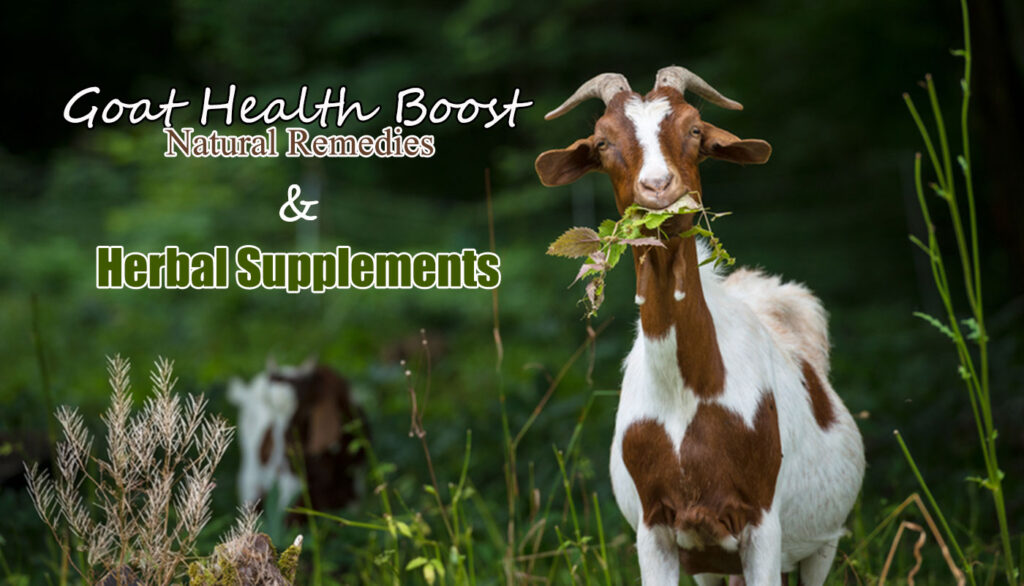
Goat farming, whether for meat, milk, or fiber, requires meticulous attention to the health and well-being of the animals. While conventional veterinary care is essential, many goat breeders are turning to natural remedies and herbal supplements to support the health of their herds. From boosting immunity to preventing common ailments, nature offers a treasure trove of remedies for our caprine companions.
1. Herbal Immune Boosters:
Herbal immune boosters play a crucial role in promoting the overall health and resilience of goats. Just like humans, goats can benefit from natural remedies that support their immune system and help them ward off infections and diseases. Here are some effective herbal immune boosters for goats:
Echinacea: Echinacea is a well-known herb prized for its immune-stimulating properties. It helps activate the body’s immune response, making goats more resistant to bacterial and viral infections. Echinacea can be administered as a dried herb mixed into feed or as a tincture added to drinking water.
Astragalus: Astragalus is an adaptogenic herb that supports immune function by enhancing the production of white blood cells. It also possesses anti-inflammatory and antioxidant properties, which can help protect goats from oxidative stress and inflammation. Astragalus can be incorporated into the diet as a dried herb or as a supplement.
Garlic: Garlic is a potent natural antibiotic and immune booster. It contains allicin, a compound known for its antimicrobial properties, which can help goats fight off bacterial and fungal infections. Feeding goats fresh or dried garlic cloves or incorporating garlic powder into their feed can provide immune support.
Goldenseal: Goldenseal is a powerful herb with antimicrobial properties, particularly effective against bacteria and parasites. It can help strengthen the immune system and prevent respiratory and gastrointestinal infections in goats. Goldenseal root powder can be mixed into feed or administered as a tincture.
Oregano: Oregano is rich in antioxidants and essential oils with antimicrobial properties, including carvacrol and thymol. It can help boost immunity and support respiratory health in goats. Oregano leaves or oregano oil can be added to feed or provided as a natural supplement.
Thyme: Thyme is another herb with potent antimicrobial properties, thanks to its essential oil content, particularly thymol. It can help fight off respiratory infections and boost overall immune function in goats. Thyme leaves or thyme oil can be added to feed or used in herbal teas.
2. Digestive Health Aids:
Maintaining optimal digestive health is paramount for the well-being of goats, as they are prone to digestive issues such as bloat, diarrhea, and gastrointestinal discomfort. Herbal remedies can play a significant role in supporting digestive health and promoting proper digestion in goats. Here are some effective herbal digestive health aids:
Peppermint: Peppermint is well-known for its soothing properties on the digestive system. It contains menthol, which can help relax the muscles of the digestive tract, alleviate gas, and reduce bloating in goats. Feeding goats fresh peppermint leaves or adding dried peppermint to their feed can promote healthy digestion.
Chamomile: Chamomile is a gentle herb with anti-inflammatory and calming properties, making it ideal for soothing digestive upset in goats. It can help relieve gastrointestinal spasms, reduce inflammation, and alleviate symptoms of indigestion. Chamomile tea can be added to goats’ drinking water or administered orally to support digestive health.
Fennel: Fennel is rich in volatile oils that aid digestion by stimulating the production of digestive enzymes and reducing gas and bloating. It can help regulate digestion and alleviate colic and gastrointestinal discomfort in goats. Feeding goats fresh fennel leaves or seeds or incorporating fennel powder into their feed can support digestive health.
Dandelion: Dandelion is a beneficial herb for promoting liver and digestive health in goats. It stimulates bile production, which aids in the digestion and absorption of fats, and acts as a mild diuretic, promoting detoxification. Dandelion leaves or roots can be added to feed or used to make herbal teas for goats.
Licorice: Licorice root contains glycyrrhizin, a compound with anti-inflammatory and soothing properties that can help alleviate gastrointestinal inflammation and irritation in goats. It can also support the production of mucus in the digestive tract, protecting the stomach lining. Licorice root powder can be added to feed or administered orally as a supplement.
Ginger: Ginger is renowned for its digestive benefits, including relieving nausea, reducing gas, and improving overall digestion. It contains gingerol and other bioactive compounds that stimulate digestive enzymes and promote motility in the gastrointestinal tract. Fresh ginger root or ginger powder can be added to goats’ feed or used to make herbal teas.
3. Parasite Control:
Parasite control is a critical aspect of goat management, as internal parasites can cause significant health issues and reduce productivity in herds. While conventional dewormers are commonly used, frequent reliance on chemical treatments can lead to parasite resistance. Herbal remedies offer a natural and sustainable approach to parasite control in goats. Here are some effective herbal options:
Wormwood (Artemisia absinthium): Wormwood contains compounds like absinthin and santonin, which have anthelmintic properties, meaning they can help expel internal parasites such as roundworms and tapeworms. Feeding goats fresh or dried wormwood leaves or incorporating wormwood powder into their feed can aid in parasite control.
Garlic (Allium sativum): Garlic is well-known for its antimicrobial properties, but it also has mild anthelmintic effects. Feeding goats fresh or dried garlic cloves or incorporating garlic powder into their feed can help deter internal parasites and support overall health.
Neem (Azadirachta indica): Neem is a powerful herb with antiparasitic properties. It contains compounds like azadirachtin and nimbidin, which can help control internal parasites in goats. Neem leaves or neem oil can be incorporated into feed or used topically as a natural insect repellent to prevent external parasites like lice and mites.
Pumpkin Seeds: Pumpkin seeds contain an amino acid called cucurbitacin, which has been shown to have anthelmintic properties against certain types of intestinal worms in goats. Feeding goats raw, unsalted pumpkin seeds or incorporating pumpkin seed meal into their feed can aid in parasite control.
Diatomaceous Earth: Diatomaceous earth is a natural, mineral-based substance made from fossilized diatoms. It works by physically disrupting the exoskeletons of parasites, causing dehydration and death. Food-grade diatomaceous earth can be mixed into feed or provided free-choice for goats to ingest as a parasite control measure.
Black Walnut (Juglans nigra): Black walnut hulls contain juglone, a compound with anthelmintic properties effective against certain types of gastrointestinal parasites in goats. Feeding goats ground black walnut hulls or incorporating black walnut tincture into their feed can aid in parasite control.
It’s important to note that while herbal remedies can be effective for parasite control, they may not eliminate all types of parasites or provide immediate results. Additionally, proper pasture management, rotational grazing, and good sanitation practices are essential components of an integrated parasite control program for goats.
4. Stress Reduction and Relaxation:
Stress can have a significant impact on the health and well-being of goats, affecting everything from their immune function to their reproductive performance. Fortunately, herbal remedies can be valuable tools for reducing stress and promoting relaxation in goats. Here are some effective options:
Lavender (Lavandula angustifolia): Lavender is well-known for its calming and soothing properties, both for humans and animals. It contains compounds like linalool and linalyl acetate, which have been shown to reduce anxiety and promote relaxation. Lavender essential oil can be diffused in the barn or added to goats’ bedding to create a calming environment.
Valerian (Valeriana officinalis): Valerian is a potent herb with sedative properties that can help alleviate stress and anxiety in goats. It contains compounds like valerenic acid, which act on the nervous system to induce relaxation and improve sleep quality. Valerian root can be administered orally or added to goats’ feed to promote relaxation.
Chamomile (Matricaria chamomilla): Chamomile is a gentle herb with mild sedative effects that can help calm nervous goats and promote relaxation. It contains compounds like apigenin and bisabolol, which have been shown to reduce anxiety and induce sleep. Chamomile tea can be added to goats’ drinking water or administered orally to promote relaxation.
Passionflower (Passiflora incarnata): Passionflower is another herb known for its calming properties, particularly for relieving nervous tension and promoting relaxation. It contains compounds like flavonoids and alkaloids, which have mild sedative effects on the nervous system. Passionflower tea can be administered orally or added to goats’ feed to reduce stress and anxiety.
Lemon Balm (Melissa officinalis): Lemon balm is a gentle herb with calming and mood-lifting properties that can help reduce stress and anxiety in goats. It contains compounds like rosmarinic acid and flavonoids, which have been shown to modulate neurotransmitter activity in the brain. Lemon balm leaves can be added to goats’ feed or administered orally to promote relaxation.
Skullcap (Scutellaria lateriflora): Skullcap is a relaxing herb that can help calm nervous goats and reduce stress-related symptoms. It contains compounds like flavonoids and terpenoids, which have been shown to have mild sedative effects on the nervous system. Skullcap tincture can be administered orally or added to goats’ feed to promote relaxation.
5. Joint and Muscle Support:
Maintaining healthy joints and muscles is essential for the overall well-being and mobility of goats, especially as they age or engage in physically demanding activities. Herbal remedies can be valuable in supporting joint health, reducing inflammation, and alleviating muscle soreness in goats. Here are some effective options for joint and muscle support:
Turmeric (Curcuma longa): Turmeric is a potent anti-inflammatory herb that contains curcumin, which has been shown to reduce inflammation and alleviate pain associated with arthritis and other joint conditions in goats. Feeding goats turmeric powder mixed with their feed or incorporating fresh turmeric root into their diet can help support joint health.
Ginger (Zingiber officinale): Ginger is another anti-inflammatory herb that can help reduce inflammation and alleviate pain in goats with joint or muscle issues. It contains compounds like gingerol and shogaol, which have been shown to inhibit inflammatory pathways in the body. Adding fresh ginger root or ginger powder to goats’ feed can provide joint and muscle support.
Devil’s Claw (Harpagophytum procumbens): Devil’s claw is a traditional herbal remedy known for its anti-inflammatory and analgesic properties, making it effective for relieving pain and stiffness associated with arthritis and muscle soreness in goats. Devil’s claw root powder can be mixed into goats’ feed or administered orally to support joint and muscle health.
Boswellia (Boswellia serrata): Boswellia is a resinous herb that contains boswellic acids, which have potent anti-inflammatory effects. It can help reduce inflammation and alleviate pain in goats with joint conditions such as arthritis. Boswellia resin can be administered orally or mixed into goats’ feed to support joint health.
Nettle (Urtica dioica): Nettle is a nutrient-rich herb that contains vitamins, minerals, and bioactive compounds that support joint and muscle health in goats. It has anti-inflammatory properties and can help reduce pain and inflammation associated with arthritis and other joint conditions. Nettle leaves can be fed fresh or dried to goats or incorporated into their feed as a supplement.
Arnica (Arnica montana): Arnica is a traditional herbal remedy known for its analgesic and anti-inflammatory properties, making it effective for relieving pain and soreness in muscles and joints. Arnica oil or cream can be applied topically to goats’ affected areas to alleviate pain and promote healing.
6. Respiratory Health:
Maintaining respiratory health is crucial for the overall well-being and performance of goats, especially in environments where they may be exposed to respiratory pathogens or environmental irritants. Herbal remedies can provide effective support for respiratory health, helping to clear congestion, reduce inflammation, and support the immune system. Here are some herbal options for promoting respiratory health in goats:
Thyme (Thymus vulgaris): Thyme is a potent herb with antimicrobial and expectorant properties, making it effective for clearing congestion and fighting respiratory infections in goats. It contains compounds like thymol and carvacrol, which have been shown to inhibit the growth of bacteria and viruses in the respiratory tract. Thyme leaves or thyme oil can be added to goats’ feed or used in steam inhalation treatments to support respiratory health.
Oregano (Origanum vulgare): Oregano is rich in essential oils with antimicrobial and expectorant properties, making it effective for combating respiratory infections and promoting lung health in goats. It contains compounds like carvacrol and thymol, which have been shown to inhibit the growth of bacteria and viruses in the respiratory tract. Oregano leaves or oregano oil can be added to goats’ feed or used in steam inhalation treatments to support respiratory health.
Eucalyptus (Eucalyptus globulus): Eucalyptus is well-known for its decongestant and expectorant properties, making it effective for clearing congestion and promoting respiratory health in goats. It contains compounds like eucalyptol, which have been shown to help loosen mucus and improve airflow in the respiratory tract. Eucalyptus leaves or eucalyptus oil can be added to goats’ bedding or used in steam inhalation treatments to support respiratory health.
Garlic (Allium sativum): Garlic is a potent antimicrobial herb that can help support respiratory health by boosting the immune system and fighting off respiratory infections in goats. It contains compounds like allicin, which have been shown to have broad-spectrum antimicrobial activity against bacteria, viruses, and fungi. Feeding goats fresh or dried garlic cloves or incorporating garlic powder into their feed can help support respiratory health.
Peppermint (Mentha piperita): Peppermint is a soothing herb with decongestant and expectorant properties, making it effective for relieving respiratory congestion and promoting lung health in goats. It contains compounds like menthol, which have been shown to help loosen mucus and improve airflow in the respiratory tract. Peppermint leaves or peppermint oil can be added to goats’ feed or used in steam inhalation treatments to support respiratory health.
Licorice (Glycyrrhiza glabra): Licorice is a soothing herb with expectorant and anti-inflammatory properties, making it effective for relieving respiratory congestion and reducing inflammation in the respiratory tract. It contains compounds like glycyrrhizin, which have been shown to help loosen mucus and soothe irritated airways. Licorice root powder can be added to goats’ feed or used in steam inhalation treatments to support respiratory health.
Incorporating natural remedies and herbal supplements into a comprehensive goat health management plan can offer numerous benefits, including reduced reliance on synthetic medications, improved overall health and well-being, and enhanced resistance to common ailments. However, it’s essential to consult with a veterinarian or experienced herbalist before introducing any new herbs or supplements, especially if the goats are pregnant, lactating, or have underlying health conditions.
By harnessing the power of nature, goat breeders can promote the health and vitality of their herds while embracing sustainable and holistic practices in animal care. Let’s nurture our caprine companions with the best that nature has to offer.
 Goat Health Guide: Understanding Common Issues in Goat Breeds
Goat Health Guide: Understanding Common Issues in Goat Breeds Angora Goat Breed – Everything You Need to Know
Angora Goat Breed – Everything You Need to Know Changthangi Goat Breed – Everything You Need to Know
Changthangi Goat Breed – Everything You Need to Know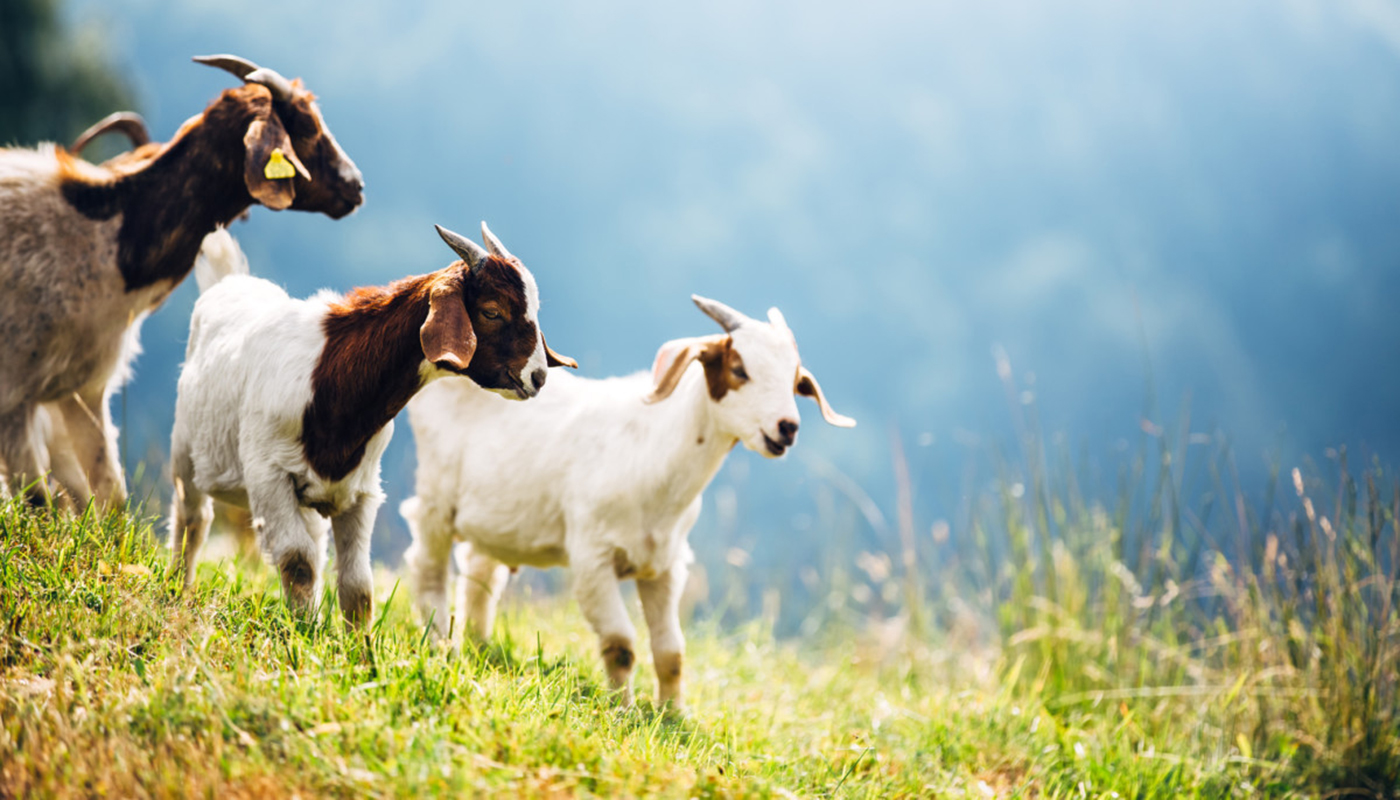 10 Most Popular Goat Breeds
10 Most Popular Goat Breeds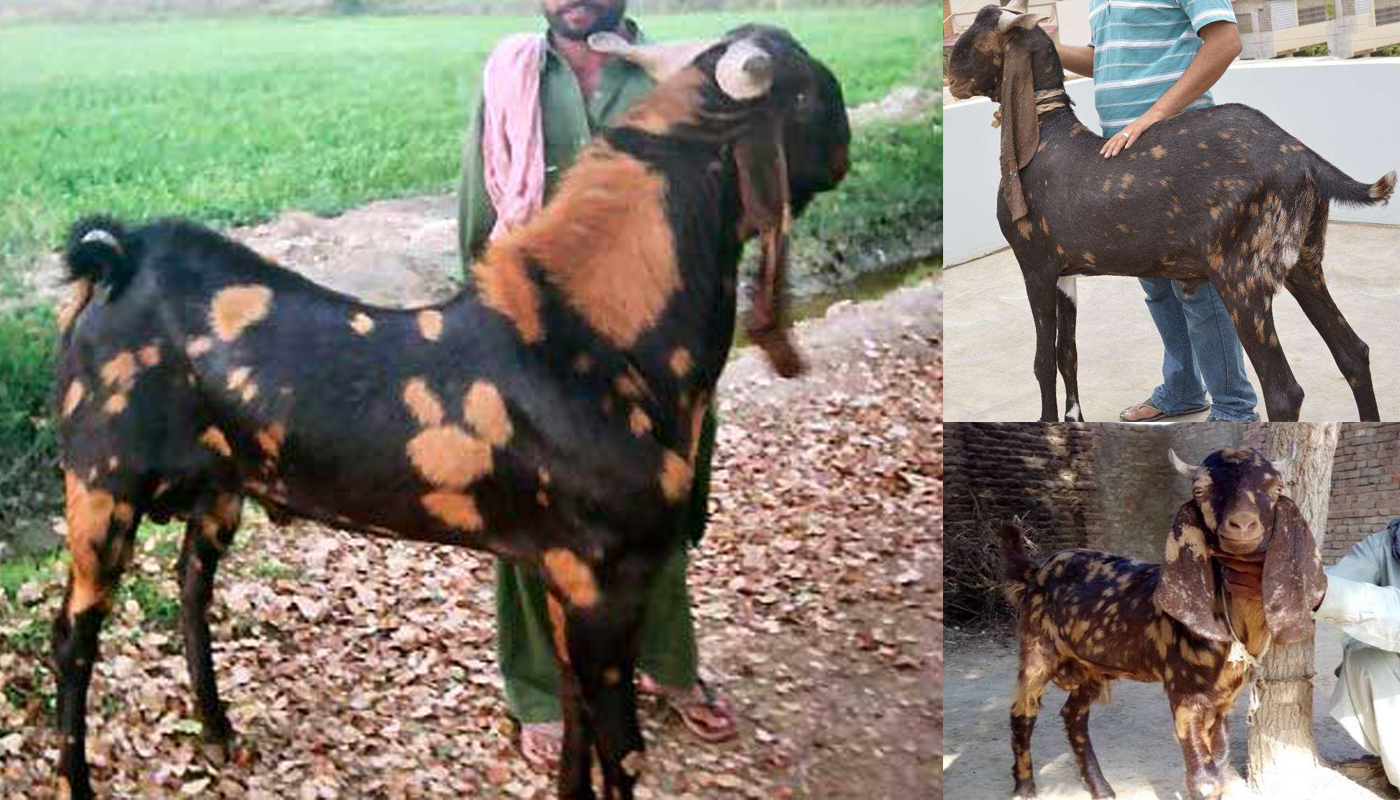 Kamori Goat Breed – Everything You Need to Know
Kamori Goat Breed – Everything You Need to Know Discover 8 Unusual Goat Breeds From Around the World | Unique Characteristics & Cultural Significance
Discover 8 Unusual Goat Breeds From Around the World | Unique Characteristics & Cultural Significance Dutch Landrace Goat Breed – Everything You Need to Know
Dutch Landrace Goat Breed – Everything You Need to Know 10 Best Goat Breeds for Meat Production
10 Best Goat Breeds for Meat Production Kinder Goat Breed – Everything You Need to Know
Kinder Goat Breed – Everything You Need to Know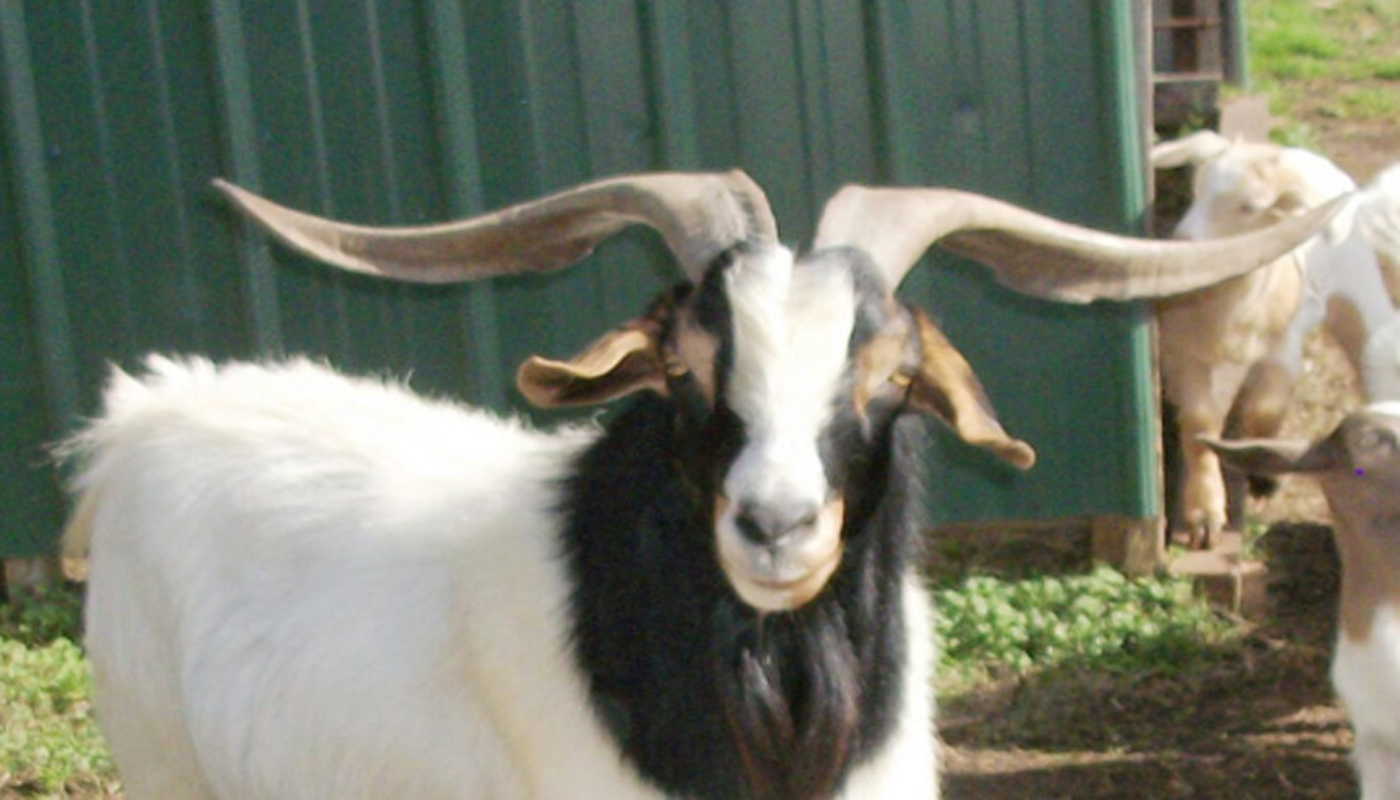 Spanish Goat Breed – Everything You Need to Know
Spanish Goat Breed – Everything You Need to Know Toggenburg Goat Breed – Everything You Need to Know
Toggenburg Goat Breed – Everything You Need to Know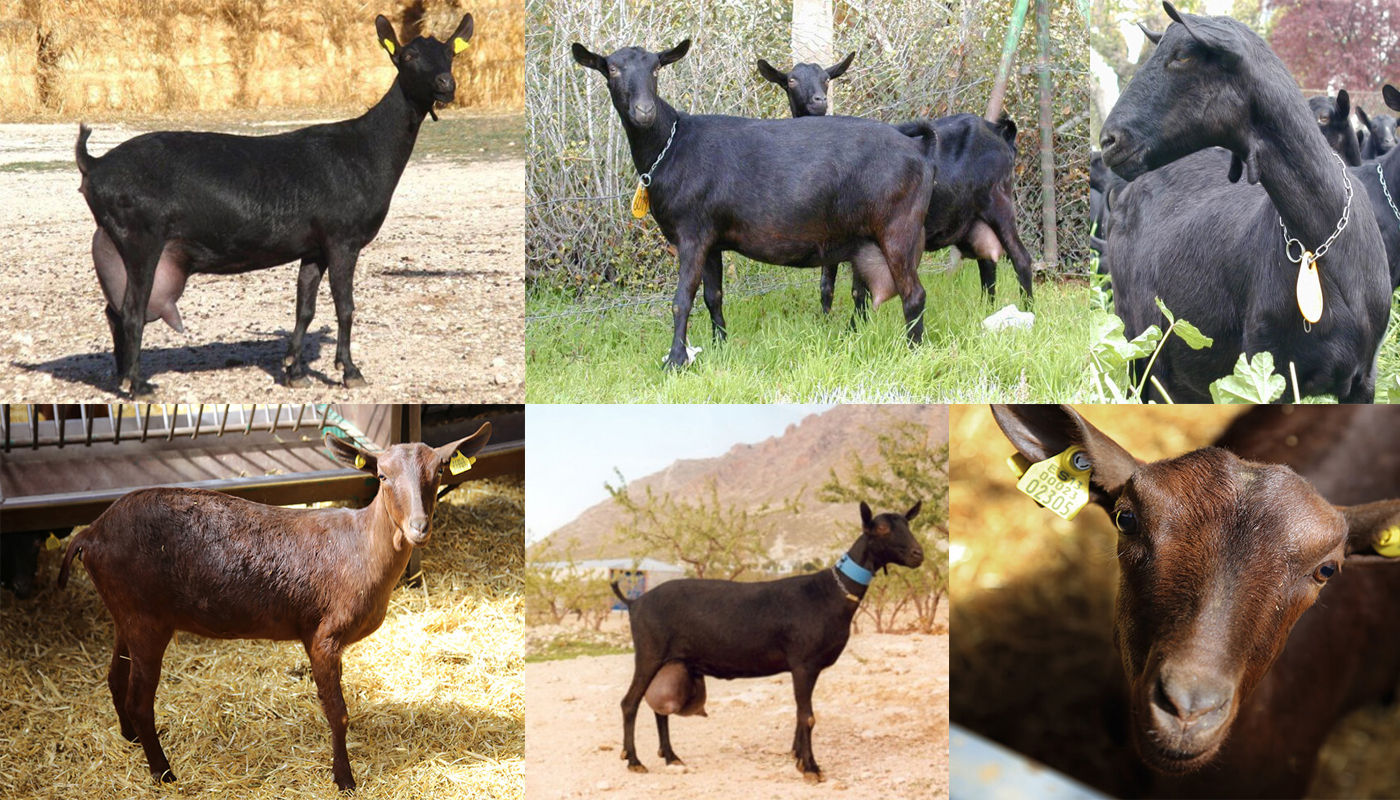 Murcia Granada Goat Breed – Everything You Need to Know
Murcia Granada Goat Breed – Everything You Need to Know